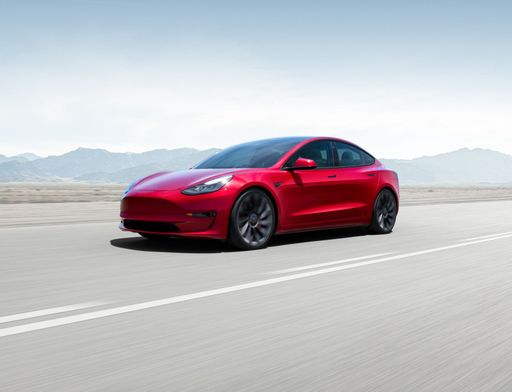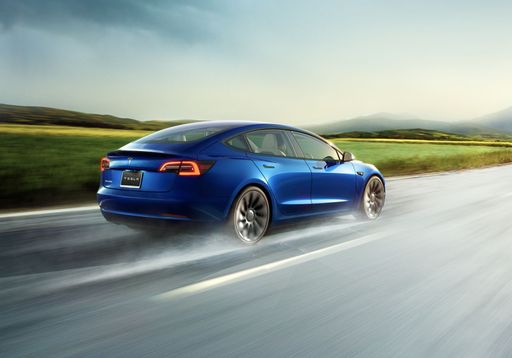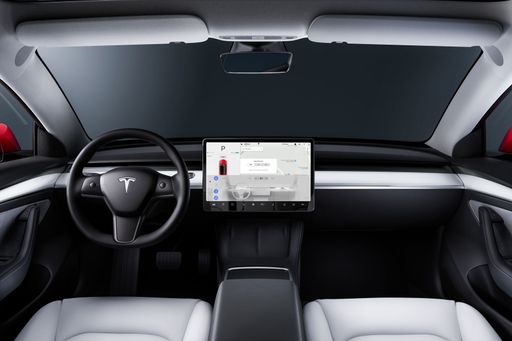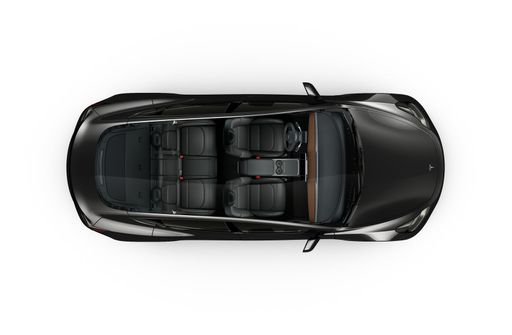Vauxhall Rocks Electric VS Tesla Model 3 – Specs, Efficiency & Price Comparison
Which model is the better choice – the Vauxhall Rocks Electric or the Tesla Model 3? We compare performance (8 HP vs 627 HP), boot capacity (63 L vs 594 L), efficiency ( vs 13.20 kWh), and of course, the price (7100 £ vs 34300 £).
Find out now which car fits your needs better!
The Vauxhall Rocks Electric (Hatchback) is powered by a Electric engine and comes with a Automatic transmission. In comparison, the Tesla Model 3 (Hatchback) features a Electric engine and a Automatic gearbox.
When it comes to boot capacity, the Vauxhall Rocks Electric offers 63 L, while the Tesla Model 3 provides 594 L – depending on what matters most to you. If you’re looking for more power, you’ll need to decide whether the 8 HP of the Vauxhall Rocks Electric or the 627 HP of the Tesla Model 3 suits your needs better.
There are also differences in efficiency: vs 13.20 kWh. In terms of price, the Vauxhall Rocks Electric starts at 7100 £, while the Tesla Model 3 is available from 34300 £.
Compare all the key specs now and find out which model fits your lifestyle best!
Vauxhall Rocks Electric
The Opel Rocks Electric stands out as a stylish and compact solution for urban mobility, offering both convenience and an eco-friendly commute. Its sleek design and vibrant colour options make it an attractive choice for those looking to navigate city streets with ease. This nimble vehicle not only promises a smooth ride but also enhances the overall urban driving experience.
detailsTesla Model 3
The Tesla Model 3 stands out in the electric vehicle market with its sleek design and impressive performance capabilities. It offers a seamless driving experience that combines advanced technology with minimalistic interiors, creating a futuristic feel on the road. Additionally, its range and charging infrastructure make it a practical choice for both city commuting and longer journeys.
details @ tesla.com
@ tesla.com
 @ tesla.com
@ tesla.com
 @ tesla.com
@ tesla.com
 @ tesla.com
@ tesla.com

|
|
|
|
|
Costs and Consumption |
|
|---|---|
|
Price
7100 - 7800 £
|
Price
34300 - 50100 £
|
|
Consumption L/100km
-
|
Consumption L/100km
-
|
|
Consumption kWh/100km
-
|
Consumption kWh/100km
13.2 - 16.7 kWh
|
|
Electric Range
75 km
|
Electric Range
513 - 702 km
|
|
Battery Capacity
5.40 kWh
|
Battery Capacity
62 - 79 kWh
|
|
co2
0 g/km
|
co2
0 g/km
|
|
Fuel tank capacity
-
|
Fuel tank capacity
-
|
Dimensions and Body |
|
|---|---|
|
Body Type
Hatchback
|
Body Type
Hatchback
|
|
Seats
2
|
Seats
5
|
|
Doors
2
|
Doors
5
|
|
Curb weight
471 kg
|
Curb weight
1822 - 1929 kg
|
|
Trunk capacity
63 L
|
Trunk capacity
594 L
|
|
Length
2410 mm
|
Length
4720 - 4724 mm
|
|
Width
1390 mm
|
Width
1850 mm
|
|
Height
1520 mm
|
Height
1431 - 1440 mm
|
|
Payload
229 kg
|
Payload
303 - 333 kg
|
Engine and Performance |
|
|---|---|
|
Engine Type
Electric
|
Engine Type
Electric
|
|
Transmission
Automatic
|
Transmission
Automatic
|
|
Transmission Detail
-
|
Transmission Detail
-
|
|
Drive Type
Front-Wheel Drive
|
Drive Type
Rear-Wheel Drive, All-Wheel Drive
|
|
Power HP
8 HP
|
Power HP
283 - 627 HP
|
|
Acceleration 0-100km/h
-
|
Acceleration 0-100km/h
3.1 - 6.1 s
|
|
Max Speed
45 km/h
|
Max Speed
201 - 262 km/h
|
|
Torque
40 Nm
|
Torque
420 - 660 Nm
|
|
Number of Cylinders
-
|
Number of Cylinders
-
|
|
Power kW
6 kW
|
Power kW
208 - 461 kW
|
|
Engine capacity
-
|
Engine capacity
-
|
General |
|
|---|---|
|
Model Year
2021 - 2022
|
Model Year
2023 - 2024
|
|
CO2 Efficiency Class
A
|
CO2 Efficiency Class
A
|
|
Brand
Vauxhall
|
Brand
Tesla
|
Vauxhall Rocks Electric
Introducing the Opel Rocks Electric
The world of electric mobility continues to expand with innovative vehicles, and the Opel Rocks Electric is at the forefront of this evolution. Embracing a sustainable future, this compact urban mobility solution combines distinctive styling with practical features, appealing particularly to city dwellers seeking an efficient and environmentally friendly mode of transportation.
Distinctive Design and Dimensions
Measuring just 2410 mm in length, 1390 mm in width, and 1520 mm in height, the Opel Rocks Electric boasts a compact design that makes navigating through narrow city streets a breeze. Despite its diminutive size, it offers a surprising amount of space with a clever two-seater configuration. The vehicle’s quirky and modern appearance clearly distinguishes it from conventional cars, while the available Klub and Tekno trims tailor its aesthetic to match individual preferences.
Technical Brilliance of Electric Power
Under the hood, the Opel Rocks Electric prioritises eco-friendliness with a completely electric powertrain. The battery capacity of 5.4 kWh powers an 8 PS (6 kW) motor, which delivers a maximum torque of 40 Nm. This configuration is ideal for urban environments, providing sufficient punch for everyday city commutes while maintaining energy efficiency.
Range and Efficiency
The vehicle’s electric range is rated at 75 km on a full charge, making it perfect for short daily trips or running errands around the city. With a top speed restricted to 45 km/h, this car falls into the light four-wheeler category, granting road use eligibility for certain groups, such as young drivers.
Comfort and Practicality
The innovative design extends beyond functionality to include comfort and convenience. The two-seat configuration offers ample space for driver and passenger, and with a boot capacity of 63 litres, there’s room for essentials and shopping bags. Additionally, its lightweight architecture, with a kerb weight of 471 kg, enhances efficiency and agility.
Safety and Sustainability
The Opel Rocks Electric’s commitment to sustainability and safety is evident in its design and operation. It achieves a commendable CO2 efficiency class of A and produces zero emissions, aligning with global efforts to combat climate change. This electric mobility solution is as kind to the planet as it is to the wallet, with an attractive price range of €8,340 - €9,140.
Conclusion
The Opel Rocks Electric represents a bold step forward in urban transportation, blending sustainable technology with convenience. For those seeking an eco-friendly, efficient, and stylish way to move around the city, this electric car is an excellent choice, reflecting Opel's dedication to innovation in mobility.
Tesla Model 3
Introduction to the Tesla Model 3
The Tesla Model 3 has quickly become a beacon of innovation in the world of electric vehicles (EVs), embodying a perfect blend of performance, technology, and sustainability. Known for redefining the electric car experience, the Model 3 stands as a testament to Tesla's commitment to pushing the boundaries of automotive design and engineering.
Design and Build
With its sleek fastback silhouette, the Tesla Model 3 is not only visually captivating but also aerodynamically efficient. Measuring at 4720 mm in length, 1850 mm in width, and 1441 mm in height, it optimally combines aesthetics with functionality. The Model 3 boasts a 594-litre boot space, offering ample room for everyday storage needs. Built with environmental efficiency in mind, its CO2 efficiency rating stands proudly at a perfect A, making it an ideal choice for the eco-conscious driver.
Powertrain and Performance
Under the bonnet, the Model 3 offers a diverse range of powertrains. It is available in both rear-wheel drive (RWD) and all-wheel drive (AWD) options, catering to different driving preferences. The electric motors deliver a remarkable power output ranging from 283 to 460 PS, translating to 208 to 338 kW. Depending on the variant, the Model 3 can accelerate from 0 to 100 km/h in a staggering 3.1 to 6.1 seconds. With a top speed between 201 and 262 km/h, the Model 3 promises an exhilarating driving experience.
Battery and Range
The Model 3 is equipped with a robust battery pack, available in capacities ranging from 62 to 79 kWh. This ensures an impressive electric range of 513 to 629 km on a single charge, catering perfectly to both city drivers and those who frequently embark on long-distance journeys. The energy consumption is between 13.2 to 16.5 kWh per 100 km, showcasing Tesla's efficiency in engineering cutting-edge EV technology.
Technological Innovations
The interior of the Model 3 is where technology takes centre stage. With its state-of-the-art autopilot feature, semi-autonomous driving is not just a promise but a reality. The vehicle continually updates over-the-air, ensuring that the software is always up-to-date with the latest features and improvements. Furthermore, the minimalist interior design, accentuated by a massive central touchscreen display, epitomises modernity and enhances the user experience with intuitive controls and navigation.
Cost Considerations
Given its advanced features and performance capabilities, the Model 3's price point ranges from €42,490 to €58,490. Monthly operating costs are estimated to be between €1,073 and €1,397, with per-kilometre costs between 42.9 and 55.9 cents, making it a competitively priced option within the premium EV market segment.
Conclusion
The Tesla Model 3 continues to lead the charge in the electric revolution, offering a compelling package of performance, innovation, and sustainability. For anyone seeking a modern, efficient, and technologically advanced vehicle, the Model 3 deserves serious consideration. With Tesla's groundbreaking vision and innovative engineering, this vehicle is not merely an investment in cutting-edge technology but also in a sustainable future.
The prices and data displayed are estimates based on German list prices and may vary by country. This information is not legally binding.
